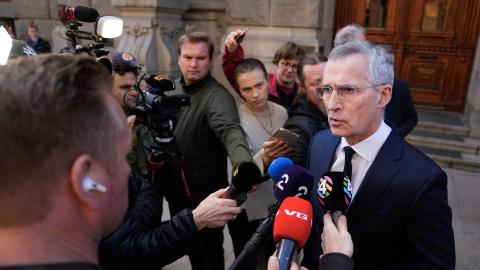An advocacy group ironically calling itself “Free Press” wants to muzzle American broadcasters in the midst of the coronavirus pandemic. No, that’s not a joke.
The organization recently filed an emergency petition with the Federal Communications Commission, urging it to stop broadcasters from airing the administration’s coronavirus press briefings. Broadcasting them, Free Press claimed, ran afoul of an FCC rule prohibiting broadcasters from knowingly disseminating hoaxes.
In its petition, Free Press laid out a laundry list of statements it claimed violated the rule, including the President’s touting of an anti-malarial drug that has proven helpful with some, but not all, coronavirus patients, and is currently undergoing clinical trials in New York and elsewhere.
Beyond the absurdity of asking one agency of the federal government to censor other federal agencies including the President, Free Press’s petition blatantly misrepresented the FCC’s anti-hoax rule. The FCC passed this rule in 1992 in response to a spate of local radio incidents. These included an Arizona station falsely claiming it was held hostage by a local Indian tribe, a California station airing a fake murder “confession” from a nonexistent listener, and a Rhode Island station falsely claiming a host had been shot in the head.
In each of these instances, the radio station’s dissemination of known false information caused a diversion of public safety and law enforcement resources, resulting in clear public harm. This is what the anti-hoax rule was designed to prevent. The FCC certainly did not in its record describe an intent to muzzle federal administrations during public health crises.
Free Press’s petition reveals its objective: government censorship of political actors and speech it dislikes. This is evident from the petition targeting not only the President and his administration, but also conservative commentators.
Elsewhere, Free Press has made no bones about its negative view of the Trump Administration, claiming it wants to “destroy public media, ” “ kill free speech, ” and “ shut down the [I]nternet. ”
While political speech of any stripe will inevitably be deemed harmful by some, neither the FCC nor any part of the federal government should be in the business of policing it. Such monitoring would create an instrument ripe for abuse by political opportunists. If Free Press’s petition were granted, the precedent of silencing of one set of voices today would pave the way for silencing a different set of voices tomorrow. Of course, a free press is measured by its scope of expression regardless of who is in power. That scope is exactly what Free Press opposes.
The FCC denied Free Press’s petition. In a statement, Chairman Pai said that “[t]he federal government will not—and never should—investigate broadcasters for their editorial judgments simply because a special interest group is angry at the views being expressed on the air as well as those expressing them.”
Chairman Pai is right. Individuals or organizations concerned with the administration’s coronavirus messaging may exercise their free speech rights and voice those concerns. In a free society, the proper remedy for disliked speech is never less speech but more.
The worst remedy of all is to have a government agency be the arbiter of who may speak, and who may not. The dread of such potential government abuse inspired the First Amendment. It is the primary statement of a horror that the government may not commit.
Read in RealClear Markets




















